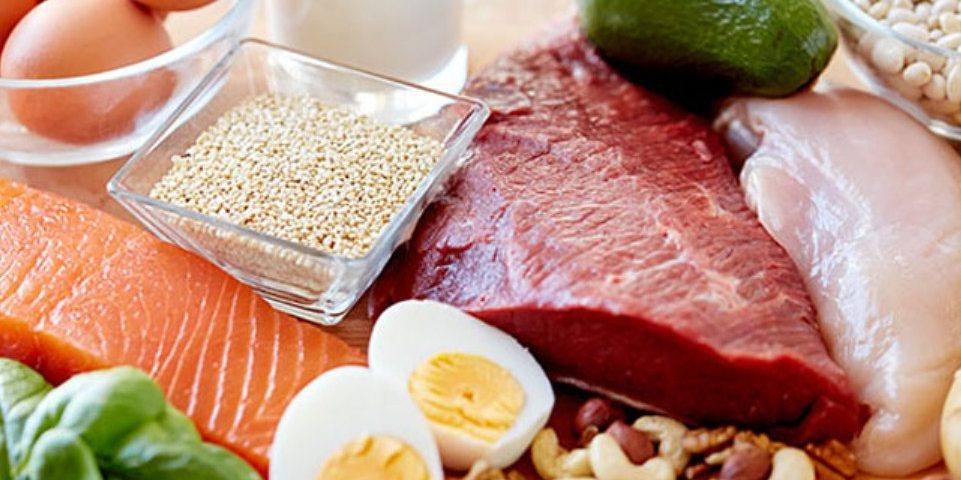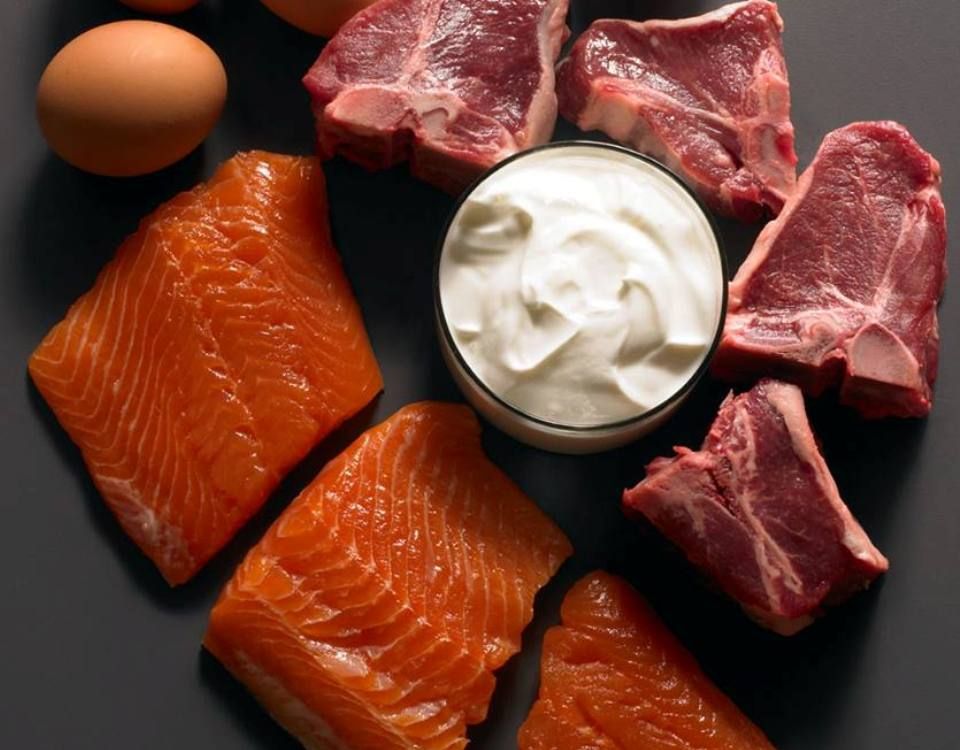The Ideal Bulking Meal: How Much Protein, Carbs and Fat Do You Need?

Putting on quality muscle mass isn’t solely achieved by training. True, moving heavy weights is what packs on size, but it can’t be done without one key element – proper nutrition. In fact, nutrition is so important that all your training will go to waste if your nutrition is not on point. But it takes a well-formed nutrition plan, one that has you eat the right types of macronutrients at the right times and in optimal proportions to build the kind of physique you’re looking for. Below is a nice and simple breakdown of the macronutrients you should include in your meals to pack on the quality muscle size you want.
1. Protein
Normally, when you think about building muscle, you think protein. That’s because protein is the building block of every muscle fiber in your body and is essential for driving muscle growth. Protein provides the body with the essential amino acids that it needs to repair damaged muscle fibers and manufacture important growth hormones to support muscle growth and recovery. Your meals should never go with a sufficient amount of protein being consumed, especially when lifting extremely heavy. The heavier you lift, the more mechanical damage your muscle fibers undergo. The more damage your muscle fibers endure, the more recovery they will need. These processes make protein even more critical.
- To maximize muscle-building, you will need to get at least 1-1.5 grams per pound of body weight per day.
The best protein sources to include in your diet include chicken, beef, turkey, tuna, salmon, eggs, and low-fat cottage cheese. High-quality protein supplements are also very important for variety, convenience and increased protein uptake by muscle cells, especially postworkout which is the most critical window of nutritional opportunity.
2. Carbohydrates
While protein is critical, so are carbohydrates. To be strong set after set, you need plenty of carbohydrates, which will be stored in muscle as glycogen. Glycogen is the collection of carbohydrates stored in muscles that fuel your training and affects anabolism. To maintain that supply as you’re trying to gain muscle, you need a slight positive intake in carbohydrates at each meal. In addition, carbs spare muscle protein from being broken down for energy and trigger insulin release in the body, helping drive amino acids to muscle cells.
- Shoot for about 2-2.5 grams of carbs per pound of body weight per day.
Good sources of carbs at most of your meals should include slow-digesting carbs such as oatmeal, vegetables, whole-wheat bread and pasta, brown rice, and sweet potatoes. You should also include some fast-digesting carbs as sports drinks, white bread or some fruits but only immediately after workout.
3. Fat
Fat is vital for boosting muscle growth because it supports the production and maintenance of testosterone, the major muscle-building hormone, and is required to absorb fat-soluble vitamins and helps stabilize blood-sugar levels. Healthy fats such as monounsaturated and omega-3 fats are also important as they not only offer multiple health benefits but they help you stay lean and help your joints recover. When lifting heavy weight, joint recovery is a critical issue. Good sources of healthy monounsaturated fats include olive oil, mixed nuts, avocados, and peanut butter. For essential omega-3 fats go with fatty fish such as salmon, mackerel, or white tuna, as well as flaxseed oil and walnuts.
- Aim to get about 25%-30% of your total daily calories from fat, and 10% of those calories should come from saturated fats found in egg yolk, red meat, and dairy products.
4. Meal breakdown
Now that you know how much protein, carbs, and fat you’ve got to have each day, the next task is to decide how you’ll spread these nutrients out over your meals. For example, if you are 200-pound male and you are eating 5 meals, you will need 200 grams of protein each day, divided by 5 meals, that means you should be having 40 grams of protein per meal. At 400 grams of carbs each day, divided by 5 meals, that’s mean you should be having an average of each 80 grams of carbs per meal. Once again, don’t forget to include a small amount of essential fats (10 to 15 grams) with each meal.



